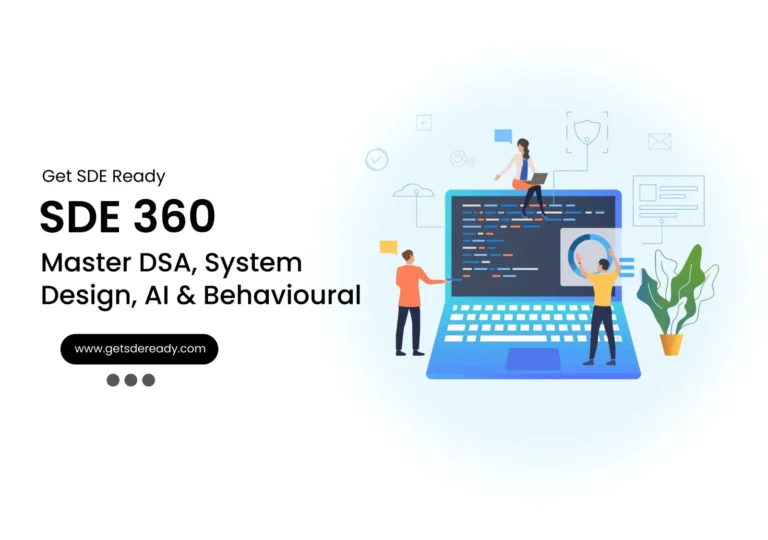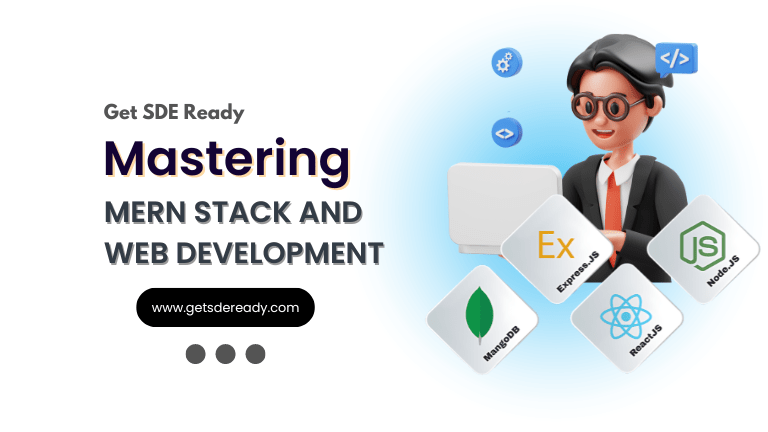
Why System Design Interviews Are Challenging
System design interviews are one of the most difficult stages in a software engineering hiring process. Unlike coding interviews that focus on solving specific algorithmic problems, system design interviews test a candidate’s ability to build large-scale, scalable, and high-performance systems. In this article, we’ll explore why these interviews are so challenging and how to navigate them effectively.
Open-Ended Nature of System Design Problems
No Single Correct Answer
System design questions are deliberately ambiguous. Unlike coding challenges where there’s a definitive correct solution, system design questions require candidates to justify their design choices, trade-offs, and optimizations based on the given constraints.
- There are multiple ways to approach a problem, and interviewers assess your thought process rather than just the final answer.
- Candidates must clarify vague requirements, which can be overwhelming under pressure.
- Designing scalable systems requires an in-depth understanding of various components like databases, caching, and load balancing.
Evaluating Trade-offs
Every architectural decision has its advantages and disadvantages. Candidates must weigh these trade-offs and justify their choices.
Trade-off Factor | Considerations |
Scalability | Can the system handle a growing number of users? |
Consistency vs. Availability | How does the design align with CAP theorem? |
Latency | How can response times be optimized? |
Cost | What are the infrastructure and operational costs? |
Depth of Knowledge Required

Broad Tech Stack Understanding
A strong grasp of various system components is necessary to design an efficient system. Candidates must be familiar with:
- Databases: Understanding SQL vs. NoSQL, indexing, and replication.
- Networking: Concepts like load balancers, CDN, and DNS.
- To understand how a Content Delivery Network (CDN) can boost performance, check out this video: What is a CDN? ⚡ Netflix’s Secret to Smooth Streaming.
- Caching Strategies: Tools like Redis and Memcached for improving speed and reducing load.
- Scalability Techniques: Techniques like sharding, microservices, and message queues for handling growing traffic and data.
Real-World Application
Many candidates struggle because they have theoretical knowledge but lack experience in building real-world systems.
- Understanding system design principles is different from implementing them in production.
- Practical experience in debugging, performance tuning, and failure handling is essential.
- Interviewers assess candidates on real-world challenges, making it difficult for those who lack hands-on exposure.
The Need for Problem-Solving and Communication Skills

Clear and Concise Explanation
System design interviews evaluate not only technical knowledge but also communication skills. Candidates must:
- Clearly explain their thought process.
- Justify their design choices to the interviewer.
- Break down complex ideas into simple concepts.
Handling Follow-Up Questions
Interviewers will often ask follow-up questions to test the depth of understanding.
- “What happens if we have a million users instead of 10,000?”
- “How does your design handle failures and outages?”
- “What are the security considerations?”
Time Constraints and Pressure
Limited Time to Design a Complex System
Most system design interviews last 45-60 minutes. Candidates must:
- Quickly gather requirements and assumptions.
- Develop a high-level architecture before diving into details.
- Prioritize critical aspects over minor optimizations.
Handling Stress and Uncertainty
Under time constraints, many candidates struggle to:
- Manage nervousness and think critically.
- Address unexpected questions effectively.
- Avoid getting stuck in unnecessary details.
Lack of Structured Resources for Preparation
No Standardized Study Material
Unlike DSA (Data Structures & Algorithms), where structured resources are abundant, system design preparation lacks a clear roadmap.
- Candidates must rely on books like “Designing Data-Intensive Applications.”
- Online platforms provide fragmented resources that can be difficult to follow.
- Practical experience in designing real-world systems is crucial.
Need for Hands-On Experience
Theoretical knowledge alone isn’t sufficient. Candidates should:
- Work on real-world projects involving scalable systems.
- Study Recommended Topic: Roadmap to Crack Startup Design Interviews for structured guidance.
- Analyze case studies like System Design Interviews: Instagram Case Study to understand real-world applications.
Common Mistakes Candidates Make
Overcomplicating the Design
- Trying to incorporate every possible optimization can lead to over-engineering, making the design unnecessarily complex.
- Focus should be on solving the core problem first before considering optimizations.
- Simplicity and clarity matter more than fancy, complex solutions that can hinder maintainability and scalability.
Ignoring Edge Cases
- Failing to consider scalability, failure scenarios, and performance bottlenecks can result in a poor design.
- Always ask clarifying questions to understand the problem constraints.
- Incorporate real-world failure scenarios like network partitions, database crashes, or high load conditions to build a more reliable and robust system.
Avoid These Mistakes
- Arun Goel is currently an SDE 2 at Atlassian and a former engineer at Samsung, with a deep understanding of system design, DSA, and algorithms. He has mentored over 10,000 students.
- Recommended Course: DSA, High & Low Level System Designs – A comprehensive course that covers both basic and advanced system design concepts.
Additional Resources
- Watch system design discussions on YouTube from top engineers: Get SDE Ready YouTube Channel.
By learning from Arun, you’ll avoid common mistakes and gain a solid foundation in system design, helping you excel in real-world technical interviews.
Recommended Topic: Top 10 Distributed System Design Challenges covers critical edge cases.
How to Prepare for System Design Interviews
Follow a Structured Approach
A well-defined preparation strategy can significantly improve performance.
Preparation Step | Details |
Understand the Basics | Learn fundamental concepts like caching, databases, and microservices. |
Practice Mock Interviews | Simulate real interviews with peers or mentors. |
Analyze Past Interview Questions | Study questions from “Recommended Topic: Top 15 Companies Asking Advanced Design”. |
Work on Real Projects | Gain hands-on experience by designing small-scale systems. |
Read Case Studies | Study Instagram: Low-Level Design Guide to learn from real-world implementations. |
Learn from Experts
- Watch system design discussions on YouTube from top engineers: Get SDE Ready YouTube Channel.
Participate in design discussions on platforms like LeetCode and Blind.
Arun Goel
- Arun is currently an SDE 2 at Atlassian and a former engineer at Samsung headquarters, graduating from DTU. He has mentored over 10,000 students, leveraging his deep understanding of data structures and algorithms alongside hands-on experience in system design.
Learn from Arun’s expertise: DSA, High & Low Level System Designs
Follow the Recommended Topic: Cracking Tech Giants’ Design Rounds to get insights from FAANG engineers.
Conclusion
System design interviews are undoubtedly challenging, but with the right approach, preparation, and resources, you can master them. By focusing on core concepts, practicing real-world problems, and learning from industry experts, you can build confidence and perform well in these interviews. If you’re looking for structured guidance, consider enrolling in expert-led courses tailored for system design, DSA, and web development. To stay updated on the latest courses or access free learning resources, sign up here: Get Free Course Updates and take the next step in your tech career.
FAQs
Why are system design interviews difficult?
System design interviews are challenging because they test a candidate’s ability to design scalable, efficient, and maintainable systems. These interviews require deep technical knowledge, problem-solving skills, and the ability to make trade-offs in real time.
How can I improve my system design skills?
To improve your system design skills, practice real-world scenarios, study case studies, and understand fundamental concepts like scalability and distributed systems. You can explore expert-led courses like Master DSA, Web Development & System Design for structured learning.
What topics should I focus on for system design interviews?
Key topics include database design, caching strategies, load balancing, microservices, and distributed systems. If you’re looking for in-depth guidance, consider courses like System Design & DSA Combined to master these concepts effectively.
Are system design interviews important for all software engineers?
Yes, system design interviews are crucial, especially for mid-level and senior software engineers. They assess your ability to build real-world applications at scale. If you’re aiming for top tech roles, check out DSA & Web Development Courses to strengthen your foundational knowledge.
Where can I find resources to prepare for system design interviews?
There are many online resources, books, and courses available. To get hands-on experience with practical problems, explore comprehensive learning paths such as Data Science & System Design or Web Development to enhance your skills.
Accelerate your Path to a Product based Career
Boost your career or get hired at top product-based companies by joining our expertly crafted courses. Gain practical skills and real-world knowledge to help you succeed.
Reach Out Now
If you have any queries, please fill out this form. We will surely reach out to you.
Contact Email
Reach us at the following email address.
arun@getsdeready.com
Phone Number
You can reach us by phone as well.
+91-97737 28034
Our Location
Rohini, Sector-3, Delhi-110085








